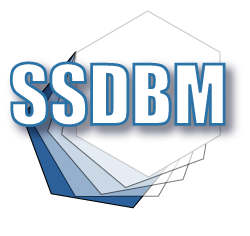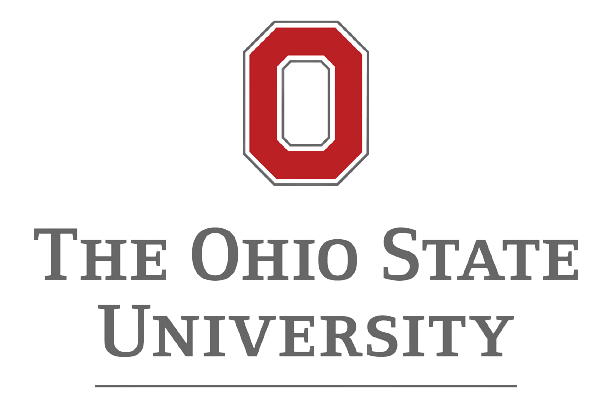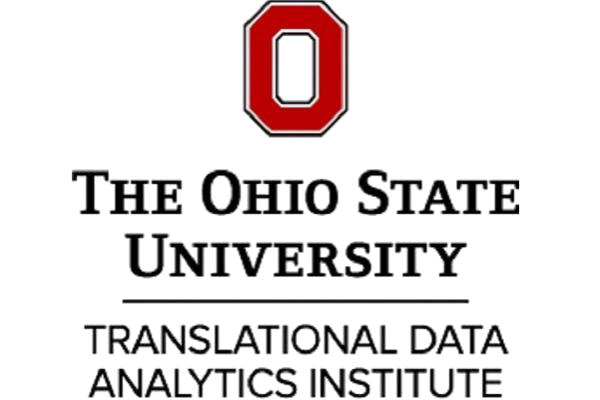
37th International Conference on Scalable Scientific Data Management
June 23–25, 2025 — Columbus, Ohio
Advance Program
Venue: Pomerene Hall
Important Dates
Paper submission deadline (Main Track): Mar 2nd, 2025 AOE
Paper submission deadline (Short and Demo papers): Mar 21st, 2025 AOE
Poster submission deadline : Apr 21st, 2025 (extended)
Notification for acceptance (Papers): Apr 4th, 2025
Notification for acceptance (Short and Demo papers): Apr 14th, 2025
Notification for acceptance (Posters): Apr 21st, 2025
Camera-Ready Deadline: May 5th, 2025Author Registration Deadline: TBD, 2025
Supporters
Accepted Papers
The accepted papers were peer-reviewed by the SSDBM 2025 technical program committees. From the submissions the committee selected 12 full research papers and 11 short / demo papers.
Accepted Long Research Papers
Rapid Workflow Response with Data Flow Scheduling & Resource Assignment Hyungro Lee, Jesun Firoz, Lenny Guo, Meng Tang and Nathan Tallent.
Enabling Lightweight Performance Analysis of Complex Scientific Workflows with PerfFlowAspect Aliza Lisan, Tapasya Patki, Stephanie Brink, Konstantinos Parasyris, Brian Gunnarson, Giorgis Georgakoudis and Hank Childs.
Amortized Cost in Graph Reordering: Why BFS Ordering Deserves More Attention Shang-Lin Li and Tung-Wei Kuo.
The Power of Two: Simplified User Interaction for the Indistinguishability Query Lam Do, Oghap Kim, Chloe Chai and Ashwin Lall
How to Mine Potentially Popular Items? A Reverse MIPS-based Approach Daichi Amagata, Aoyama Kazuyoshi, Keito Kido and Sumio Fujita
ICEAGE: Intelligent Contextual Exploration and Answer Generation Engine for Scientific Data Discovery Chenxu Niu, Wei Zhang, Mert Side and Yong Chen
Accurate Differential Analysis using Record and Selective Replay Yuta Nakamura, Xulu Chu, Ignacio Laguna and Tanu Malik
Enriching Spatial Indexes For User-Centric And Context-Aware Points Of Interest Search Raghav Mittal, Ayaan Kakkar, Mukesh Mohania, Ladjel Bellatreche and Yoshiharu Ishikawa
OGLe-Mine: Obstacle-infused Goal-conditioned Learning for Post-disaster Navigation in Underground Mine Abhay Goyal, Sanjay Madria and Samuel Frimpong.
DTIO: Data Stack for AI-driven Workflows Keith Bateman, Neeraj Rajesh, Jaime Cernuda, Luke Logan, Bogdan Nicolae, Franck Cappello, Xian-He Sun and Anthony Kougkas.
FALCON: FPGA Accelerated Lightweight Updatable Learned Index Geetesh More, Suprio Ray and Kenneth B. Kent
An Adaptive Index for Oscillating Write-Heavy and Read-Heavy Workloads Lu Xing, Ruihong Wang and Walid G. Aref.
Accepted Short / Demo Research Papers
Jovis: A Visualization Tool for PostgreSQL Query Optimizer Yoojin Choi, Juhee Han, Kyoseung Koo and Bongki Moon
Approximate Reverse k-Ranks Queries in High Dimensions Daichi Amagata, Aoyama Kazuyoshi, Keito Kido and Sumio Fujita
Advancing HPC Performance Modeling with an Interactive, Automated and Tool-Agnostic ML-Driven Workflow Zhaobin Zhu, Chen Wang and Sarah Neuwirth
Scalable Tabular Dataset Labeling with Language Models Yaojie Hu, Ilias Fountalis, Jin Tian and Nikolaos Vasiloglou
A Virtual Laboratory for Managing Computational Experiments Eleni Adamidi, Panayiotis Deligiannis, Nikos Foutris and Thanasis Vergoulis
Abstract Visual Scientific Workflow Design using VisFlow 2.0 Kallol Naha and Hasan Jamil
OmniMesh: Addressing Findability Challenges in Distributed Biodiversity Repositories [Vision] Arnab Nandi, Wei-Lun Chao, Rongjun Qin, Carl Boettiger, Hilmar Lapp and Tanya Berger-Wolf
XIO: Toward eXplainable I/O for HPC Systems Sarah Neuwirth, Hariharan Devarajan, Chen Wang and Jay Lofstead
Potency of Latent Spaces in Inverse Quantum Dye Design Md Hasan Hafizur Rahman, Jonathan Flores, Lawrence Spear, Lan Li and Hasan Jamil
Investigating the Use of File Advisory Hints on Lustre and GPFS Louis-Marie Nicolas, Salim Mimouni, Philippe Couvée and Jalil Boukhobza
A Big Data Approach for Efficient Processing of Machine Operational Data Ben Lenard, Eric Pershey, Brian Toonen, Peter Upton and Alexander Rasin.


